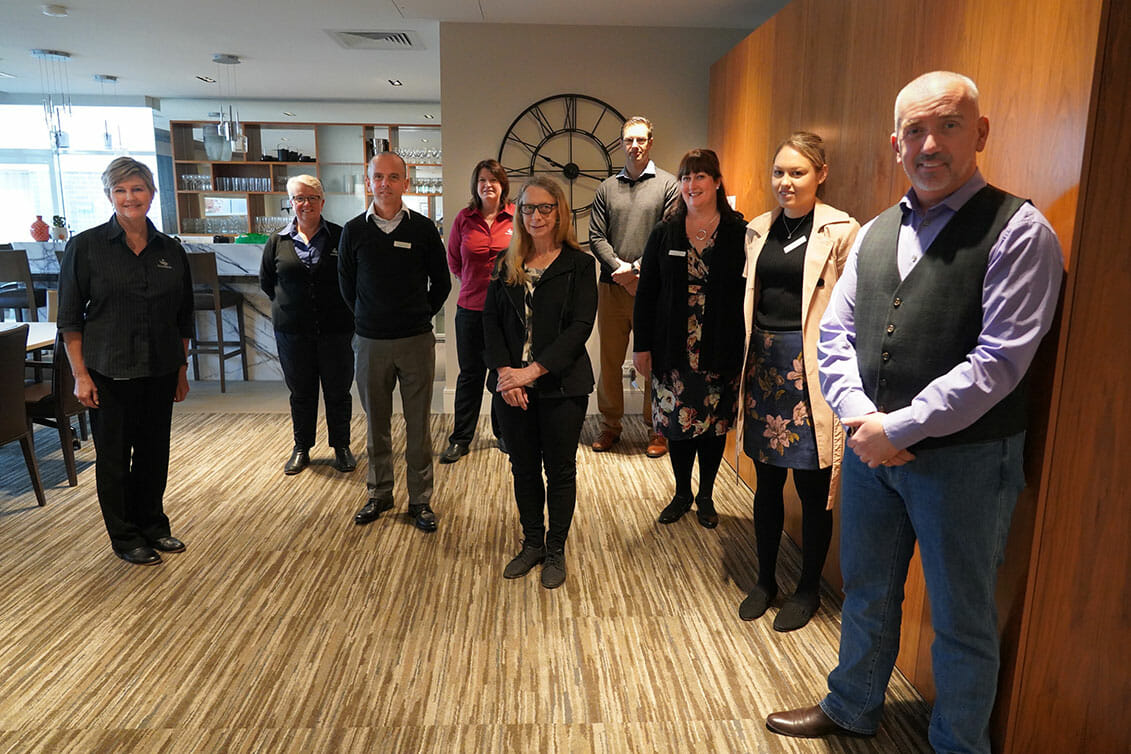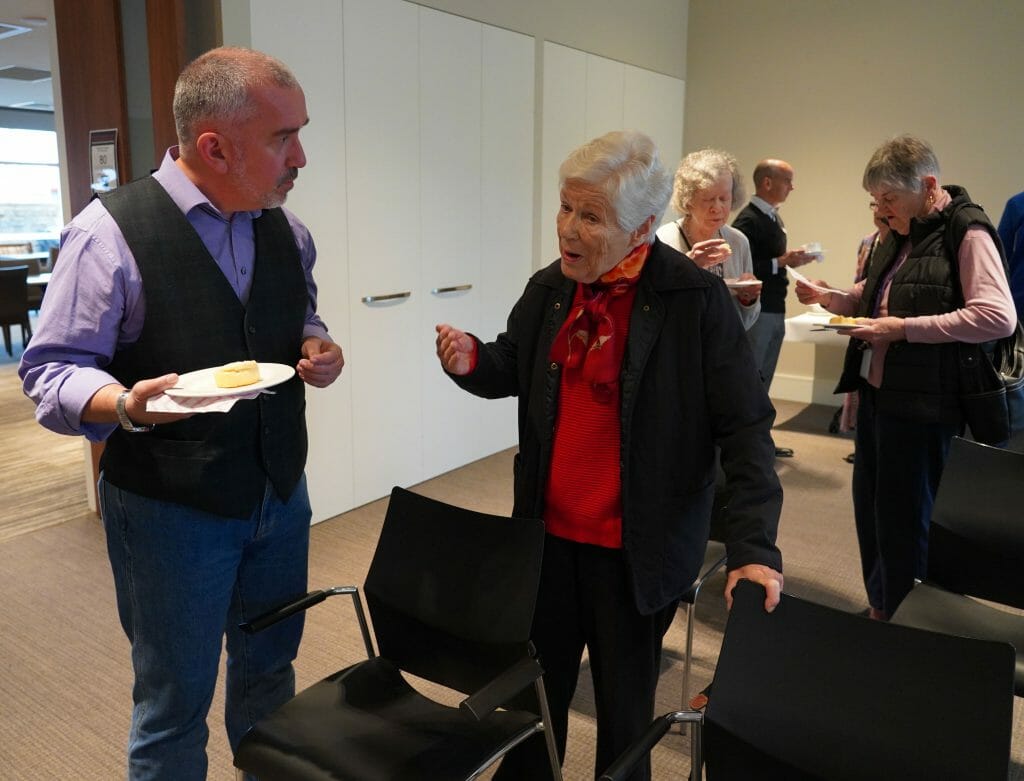Canberra University researchers are seeking the recipe to healthy ageing
Goodwin Retirement Villages are taking part in Australia’s first comprehensive nutrition study for residents in retirement villages.

The project, named Nutrition and Healthy Ageing Trajectories in Retirement Living (NutriHAT-RL), is the first Australian study to comprehensively examine food and nutrition behaviours in people living in retirement villages.
The study will be conducted by a research team from the University of Canberra led by Dr Nenad Naumovski, Dr Jane Kellett, Mr Nathan D’Cunha and Dr Stephen Isbel. ‘The aim of this study is to investigate the effects of nutrition such as dietary intake, social interactions and food quality on the overall quality of life and health in this population sample’, explains Dr Nenad Naumovski.
The project was recently presented to Goodwin Village Crace residents by the research team where they explained the project and the aim of the study, as well as inviting residents to participate. ‘The aim is to get 2500 participants in the ACT, and we are starting with Goodwin,’ says Dr Nenad. Over 20 residents have so far signed up to take part in the study.
Resident Heather Gellard is excited to be a part of the study. ‘If I can help the research, that is good and it’s also good from my own point of view’. Resident Sue Moss is also interested in taking part in the study. ‘It sounds very interesting, especially if it hasn’t been done before’.

The participants will be interviewed about their regular diet, social activities, and well-being. They will also answer a questionnaire and undergo light physical function tests.
The idea for the project developed 3 years ago when Dr Nenad was approached by his collaborators in Europe, among them being Professor Demosthenes Panagiotakos from the Harokopio University in Greece. The researchers were interested in data from Australia to contribute to the data they were collecting in the Mediterranean region. Although several studies have been conducted in Australia, there was no in-depth information on participants living in retirement villages. The research project will focus on ACT and then compare their findings to studies undertaken in the Mediterranean region.
The study is unique as it will both look at diet and social interaction. ‘We know that older adults who keep socially engaged maintain their physical and cognitive health. What we want to do is measure how, when, and why our participants engage in any social activity. This can be anything from meeting friends, going out for coffee, talking virtually through video-conferencing, or in fact any activity done with other people’, says Dr Nenad.
After the presentation residents could mingle, ask questions, and sign up to be part of the study while appreciating delicious scones and a cup of tea.